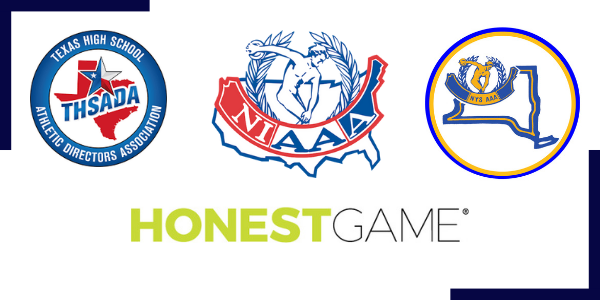The New Path to Commitment – College Sports without the National Letter of Intent (NLI)
Updated on May 28, 2025

You’ve probably seen the photos of National Signing Day where proud high school student-athletes, surrounded by family, teammates and coaches publicly sign with a college to play sports.
For many student-athletes, this day represents the culmination of a long journey involving stressful decisions, countless visits, and conversations with college coaches. Note, not every student experiences such a public display, and many go on to quietly join college teams, leaving their mark without the spotlight of National Signing Day
The Elimination of the NLI
With the NCAA Division I and II Councils’ recent decision to eliminate the National Letter of Intent (NLI), the landscape for college sports commitments has changed.
Previously, the NLI served as a binding agreement between the student-athlete and the college, marking the end of the recruiting journey by promising a one-year athletic scholarship in exchange for the student’s commitment to attend that college.
Now, student-athletes will sign only an athletic grant-in-aid – a legally binding financial aid agreement directly with the college or university. This change simplifies the process by removing the NLI from the equation, though the grant-in-aid still carries the same weight in terms of financial commitment.
The dates for signing remain the same, and high schools can still celebrate with celebratory signing ceremonies.
Stay current with the signing dates by reviewing the dates below for student-athletes signing in 2024/25 or the NCAA.org for future signing dates.

Honest Insight: You can sign an athletic grant-in-aid and still be ineligible to play sports in college.
Your eligibility depends on whether you meet NCAA requirements, whereas your admissions depend on whether you meet the institution’s admissions requirements. Even though you can sign an athletic grant-in-aid, you must still meet the school’s and NCAA’s academic requirements.
Key Changes with the Elimination of the National Letter of Intent (NLI)
- Commitment Agreements: Student-athletes will now sign an athletic grant-in-aid directly with their college, which is legally binding for one academic year. This replaces the NLI, but the key conditions remain the same – student-athletes are required to honor their commitment to the school, and in turn, the school provides financial aid.
- The NLI Program is No Longer: The athletics grant-in-aid will now come from the college or university, rather than the National Letter of Intent organization. Should students have questions regarding the terms and conditions stated in their grant-in-aid, they should contact the coach and/or compliance department of the school that sent the grant-in-aid.
- Student-Specific Terms and Conditions: The details of your athletic grant-in-aid may differ based on the specific school, the sport you’re playing, or your individual recruitment. These differences can include the duration of the scholarship (multi-year vs. annual renewal), academic expectations, or even additional commitments such as community service.
- No NLI Penalties/Requesting a Release: With the NLI no longer in place, student-athletes are now bound only by the terms of their athletic grant-in-aid agreement. While there are no longer automatic NLI penalties for switching schools, breaking or requesting a release from the grant-in-aid may still have consequences. The release process must go through the school that offered the grant, and understanding the conditions for release is crucial before signing the agreement.
How to Sign an Athletic Grant-in-Aid
Signing an athletic grant-in-aid is a crucial step in solidifying your commitment to a college or university. Here’s what you need to know about the process:
What to Sign?
The student-athlete will receive an electronic or print version of the athletic grant-in-aid agreement. This document outlines the terms and conditions of the award, including the scholarship amount and the specific requirements the student-athlete must meet to maintain it, such as academic performance or athletic participation. It is important to carefully review these terms to fully understand what is expected.
How to Submit an Athletic Grant-in-Aid?
Once you’ve reviewed and understand the agreement, you will need to complete it either electronically or in print, whichever form the college requires. By signing and submitting the agreement, you confirm your acceptance of the athletic grant-in-aid and the associated conditions. Ensure that you meet any deadlines provided by the school to secure your scholarship and finalize your commitment.
Best Practices for Schools on National Signing Day
Regan Carmichael, Athletic Director at Stevenson High School (Lincolnshire, IL), shared how their school celebrates National Signing Day and uses it as an opportunity to showcase student-athlete achievements. Stevenson has 50-75 student-athletes sign each year, split up between the 5 different college athletic pathways. The school’s community-oriented and celebratory approach to National Signing Day not only honors the athletes but also inspires younger students in attendance – and they’re committed to keeping the tradition going.
Stevenson High School was one of Honest Game’s early adopters in Illinois and was a perfect case study for all the coaches, athletic directors, and counselors viewing the live webinar. The school and staff use Honest Game to keep students on track academically by providing critical intervention through tools like Honest Game’s downloadable and shareable eligibility reports, as well as the app’s Recruit Assist and Resources Hub features, which help athletes and their families navigate recruiting with confidence.
Does Every College Athlete Sign an Athletic Grant-in-Aid?
No, not every college athlete signs an athletic grant-in-aid; only those receiving an athletic scholarship do.
Walk-ons, recruited walk-ons, and non-scholarship athletes can participate in college sports without signing an athletic grant-in-aid. While some student-athletes may sign a celebratory “commitment” letters, these do not guarantee a scholarship or roster spot without a grant-in-aid agreement.
How to Celebrate National Signing Day Without an Athletic Grant-in-Aid?
Many schools will continue to celebrate National Signing Day as a symbolic milestone, even though the NLI is no longer part of the process.
High schools can still host signing ceremonies, where student-athletes proudly announce their college commitment. However, it’s more important than ever for students and families to understand the terms of their grant-in-aid and the academic requirements they must fulfill to maintain eligibility.
What Happens After Signing a Grant-in-Aid?
After signing the athletic grant-in-aid, it is crucial for student-athletes to stay on top of their academic eligibility. Admission to the college must be secured, and students must continue to meet NCAA Initial Eligibility standards. If a student fails to gain admission or does not meet NCAA requirements, the grant-in-aid could be invalidated.
Additionally, once a student signs their athletic grant-in-aid, the college will mark the student-athlete as a committed recruit in the NCAA Eligibility Center, indicating to other NCAA DI and DII coaches that the student has committed.
Students may however continue the recruiting conversations with other NCAA schools that do not provide athletic scholarships, which may include NCAA DIII, Ivy League, or U.S. Military Academies.
Key Takeaways for Student-Athletes Making a Final Commitment to a College
Making verbal promises to a coach or declaring your decision to attend a college on Twitter after a great 9th-grade game is one thing. But when you choose to sign an NLI and accept a scholarship you are making a long-term decision.
- Fully Understand the Agreement: Without the NLI, the focus shifts to understanding the terms of the athletic grant-in-aid. It’s essential to fully comprehend what you’re committing to before signing the agreement. If you have any questions or need clarification, don’t hesitate to ask the prospective college coach or the school’s compliance officer – they are there to help you understand the details.
- Academic Eligibility Matters: Ensure that you are meeting NCAA eligibility requirements and maintain strong academic performance throughout your senior year.
- Symbolic Celebrations Still Matter: While the NLI is gone, schools can still celebrate this important milestone and recognize student-athlete achievements.
By paying close attention to these issues, you can make a more informed decision that sets you up for long-term success both academically and athletically.
Interested in learning more about the NCAA’s elimination of the NLI? Fill out the form below to watch Honest Game’s webinar, “Navigating the New Landscape of National Signing Day”.

As a former Senior Associate Athletic Director at the NCAA Division I level and with more than 20 years of experience in collegiate athletics, Courtney has advised thousands of student-athletes through the college recruiting and eligibility process for college sports. Interested in virtual counseling with Courtney? Sign up here.



